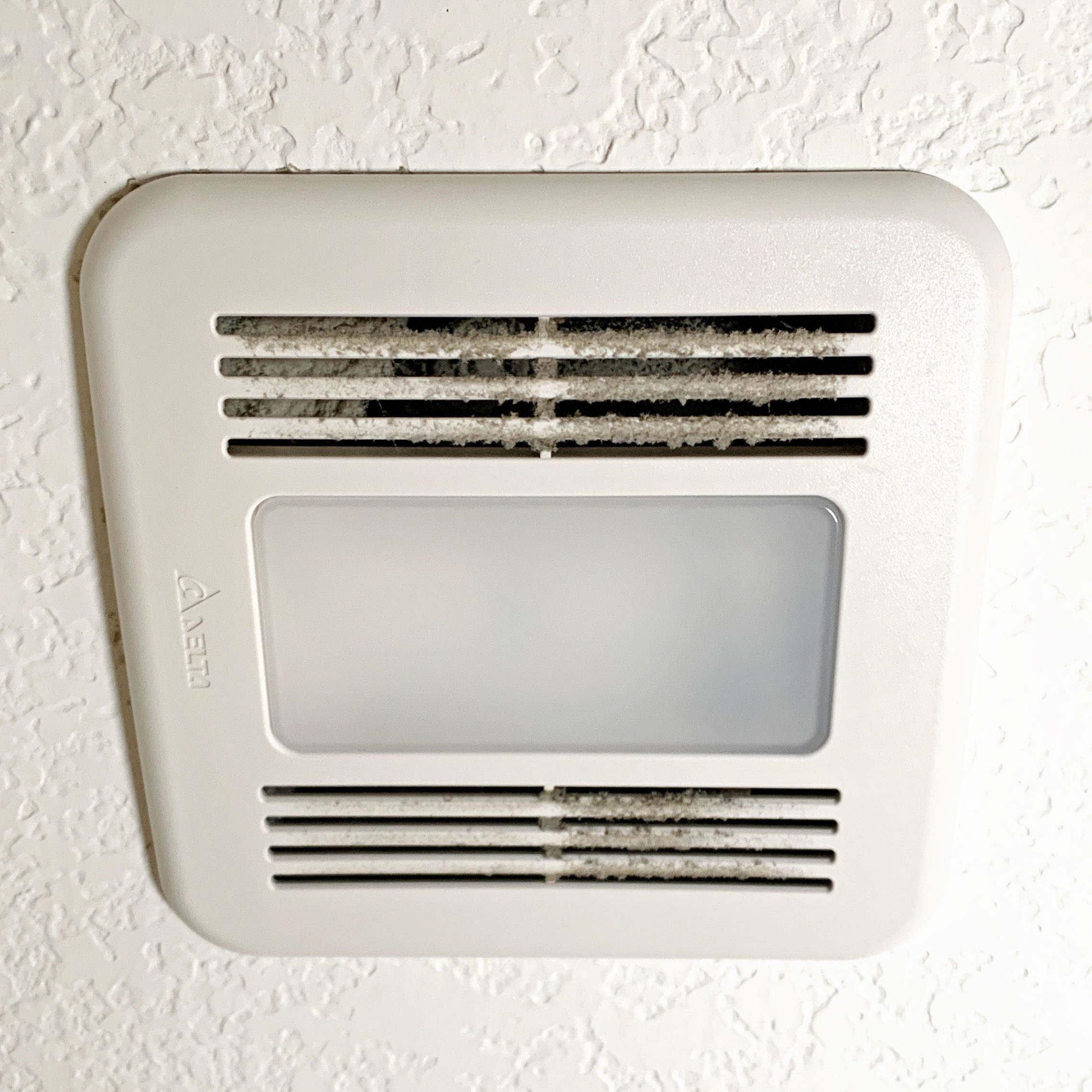Here’s the plan — don’t neglect the fan.
An hour or less
Beginner
Less than $20
Introduction
Prevent mold, mildew, and house fires when you learn how to clean a bathroom fan.
Your bathroom exhaust fan in the celling is more important than you might think.
What Does a Bathroom Exhaust Fan Do?
It helps get rid of odors, airborne contaminants and moisture in the air. When moist air hangs around in your bathroom, it can lead to serious problems like mold and mildew, peeling paint and rust on metal fixtures. It can even cause damage to the framing.
Bathroom ventilation is so important that most local building codes require exhaust fans or a window in bathrooms.
However, an exhaust fan covered in dust doesn’t work efficiently, which can lead to the problems mentioned above. Give it a good cleaning about every six months. Read on to find out how to clean your bathroom exhaust fan.
Tools Required
- Compressed air can
- Screwdriver
- Soft-bristle brush
- Vacuum (with brush attachment)
Materials Required
- Microfiber towel
Watch How To Clean a Bathroom Fan
Project step-by-step (5)
Remove the Vent Cover
- First, be sure the power is turned off to the fan. To be extra safe, turn off the circuit at the breaker box.
- If it’s just a vent with no light, remove the vent cover by gently pulling down on it, then squeezing the metal mounting wires together on both sides. Slide them out of their slots, removing them from the fan housing.
- If your vent cover has a light, disconnect the wire first. Press the release tab on the connector before removing the cover.
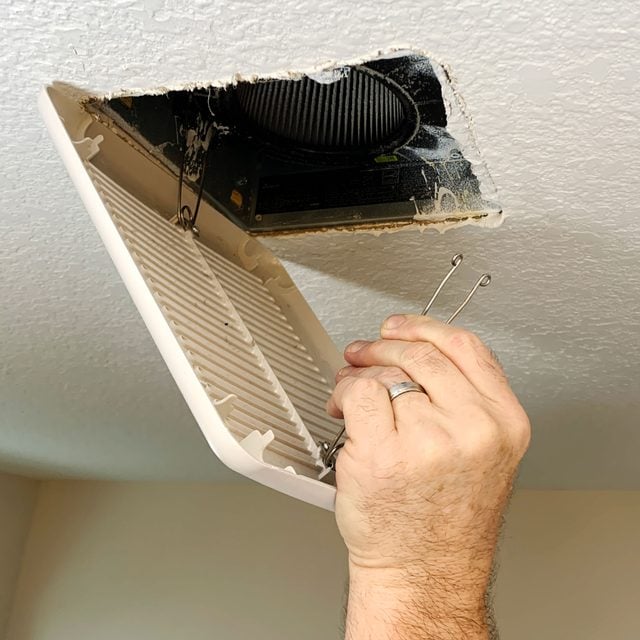
Clean the Vent Cover
- Cleaning a cover without a light is simple. Fill your bathroom sink with warm water and a few drops of dish soap. Soak the cover in the soapy water for a few minutes, then scrub it with a cloth or brush. Place the cover on a towel and let it air dry while you move on to the next step — cleaning the fan.
- If your fan cover has a light, do not submerge it in water. Simply vacuum off the dust, wipe it clean with a damp cloth, then air dry.
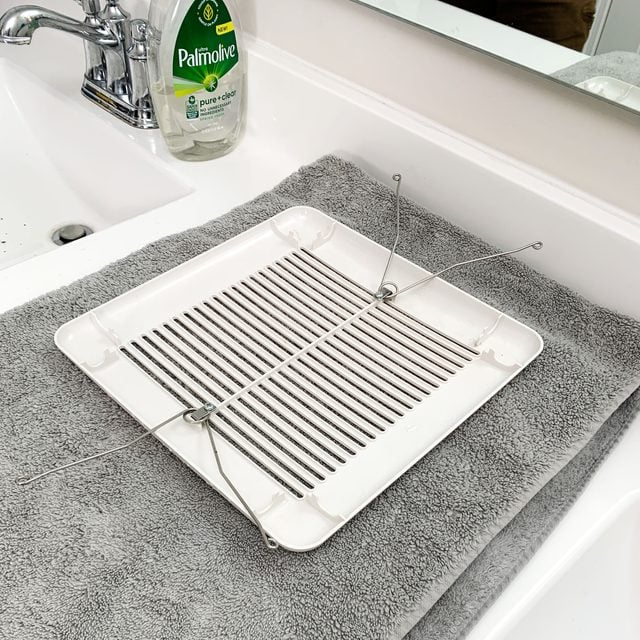
Clean the Fan Without Removing the Motor
- Use a vacuum with a crevice attachment to remove most of the dust. Then switch to a brush attachment for the fan motor components and fan housing. Maintain a light touch so you don’t damage anything.
- Once you remove the dry dust, take a damp microfiber cloth and wipe down the fan components and housing. This should remove any remaining dirt.
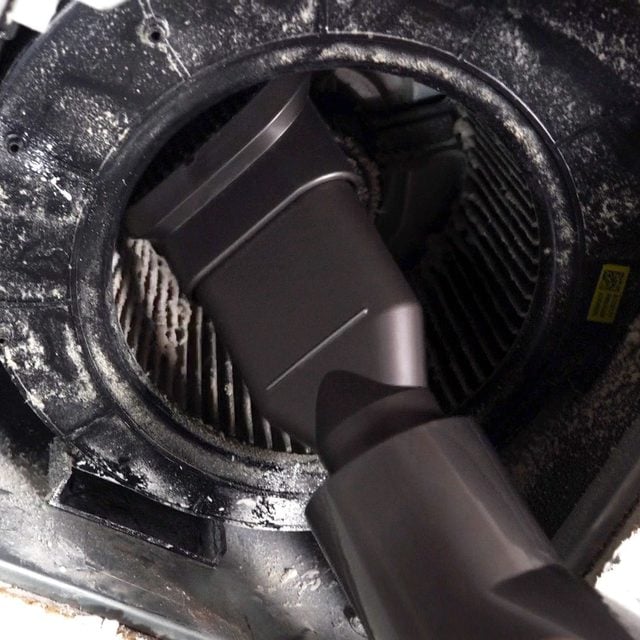
Remove the Motor for Deep Cleaning
- Don’t be afraid to further disassemble the fan. Depending on your make and model, just two or three screws hold the fan motor in the housing. (A magnetic tip screwdriver works well for this.)
- To remove the fan motor, begin by unplugging the connector or plug that powers the fan.
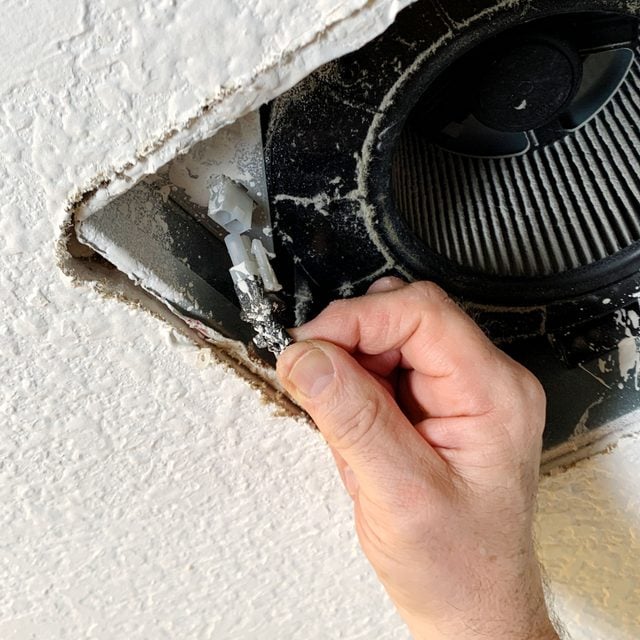
- Next, remove the mounting screws that hold the motor to the housing. Remember to hold the motor with one hand while removing the last screw, then lower the motor from the housing.
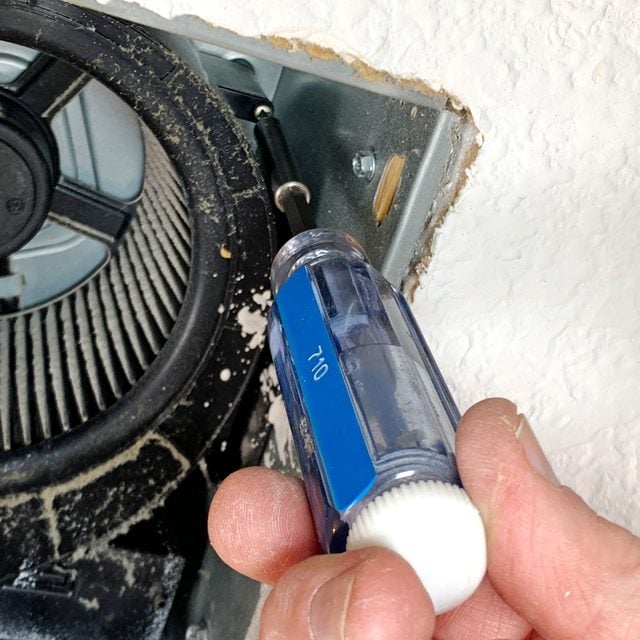
- Vacuum the motor and/or take it outside and blow the dust from the motor and fan blades with forced air. A small, soft bristle brush works well to remove caked-on dust.
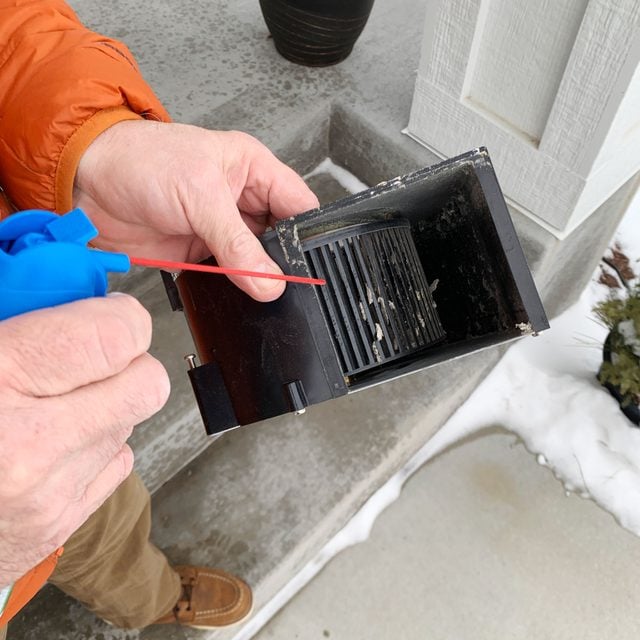
- Give the motor, fan blades and fan housing a good wipe down with a damp microfiber cloth before re-installing the motor back in the housing.
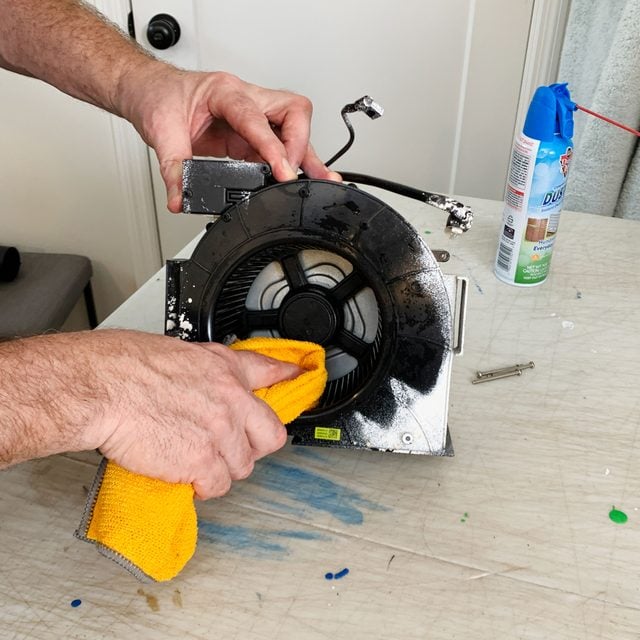
Reassemble the Exhaust Fan
- With a clean fan and a cover looking like new, it’s time to put the fan back together. If you removed the motor, your first step is to put it back in place and replace the screws.
- Next, plug in the fan. Then put the cover back on by inserting the mounting wires back into their slots, then gently pushing the cover into place.
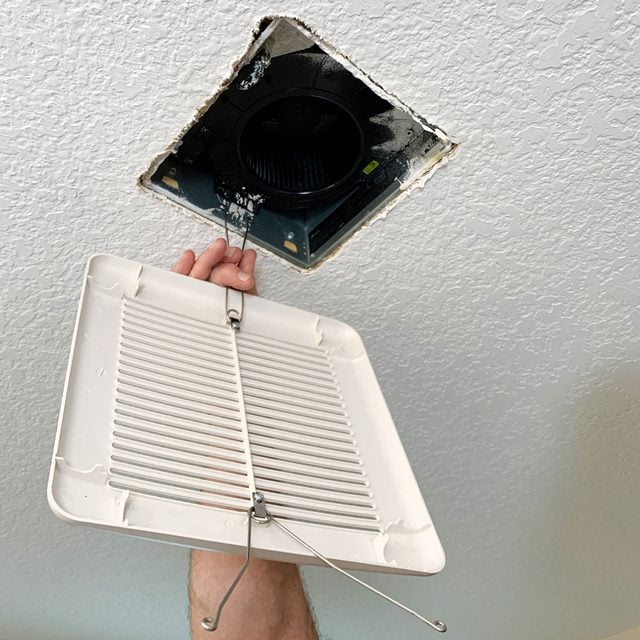
Also, learn how to replace a bathroom exhaust fan.




















